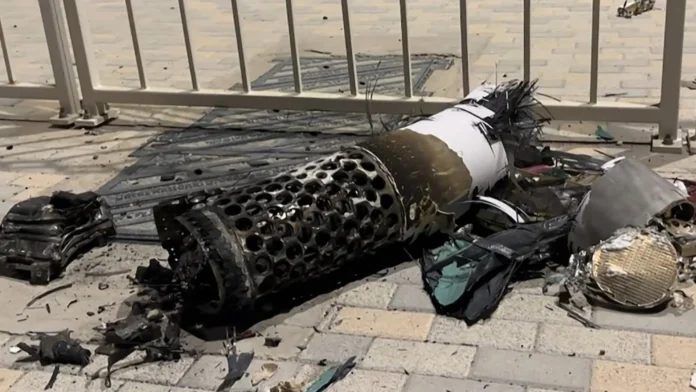Iran’s missile strike on US base in Qatar has dramatically heightened tensions in the Middle East. The attack targeted Al-Udeid Air Base, the largest US military facility in the region, in retaliation for American airstrikes on Iranian nuclear sites. Early reports indicate that Iran fired multiple missiles toward the US base. Witnesses in Doha described loud explosions as air defense systems intercepted incoming projectiles. Videos showed bright flashes lighting up the night sky.
Iranian state media claimed responsibility, stating the strike was a direct response to US aggression. The Islamic Revolutionary Guard Corps (IRGC) warned, “US bases are vulnerabilities, not strengths.” Initial assessments suggest no US or Qatari casualties. However, accounts vary on the number of missiles launched. Iran reported six, while US officials estimated 14. Qatar’s government claimed 19 were fired—all intercepted.
President Donald Trump dismissed the attack as “very weak,” thanking Iran for advance warning. Meanwhile, Qatar condemned the strike as a “violation of sovereignty.” The attack follows US airstrikes on Iranian nuclear facilities over the weekend. Washington claimed these strikes severely damaged Iran’s nuclear program. Tehran, however, vowed retaliation, insisting its nuclear activities are peaceful.
Al-Udeid Air Base serves as the central hub for US air operations in the Middle East. British troops are also stationed there, raising concerns about broader NATO involvement. Hours before the strike, the US and UK urged citizens in Qatar to “shelter in place.” Qatar temporarily closed its airspace, diverting flights from Hamad International Airport one of the world’s busiest.
US intelligence reportedly detected Iranian missile launchers positioning near Qatar. Flight tracking data showed planes rerouting before the attack, signaling prior awareness of the threat. Ayatollah Ali Khamenei, Iran’s supreme leader, declared that Tehran “will not submit to violations.”President Trump, however, suggested the strike could lead to “peace talks.”
Regional allies, including Bahrain and Kuwait, briefly shut their airspace in response. The incident underscores the fragile state of Middle East security amid ongoing US-Iran hostilities. Iran’s missile strike on US base in Qatar marks a dangerous new phase in the conflict. With both sides exchanging blows, fears of a wider war are growing. Diplomatic efforts may now face greater challenges as military posturing intensifies.
As tensions escalate, global leaders are watching closely. The risk of further retaliation looms, making stability in the region increasingly uncertain. In summary, Iran’s missile strike on US base in Qatar has thrust the Middle East into deeper turmoil. The world now waits to see whether diplomacy or further conflict will follow.
For more political updates, visit DC Brief.


